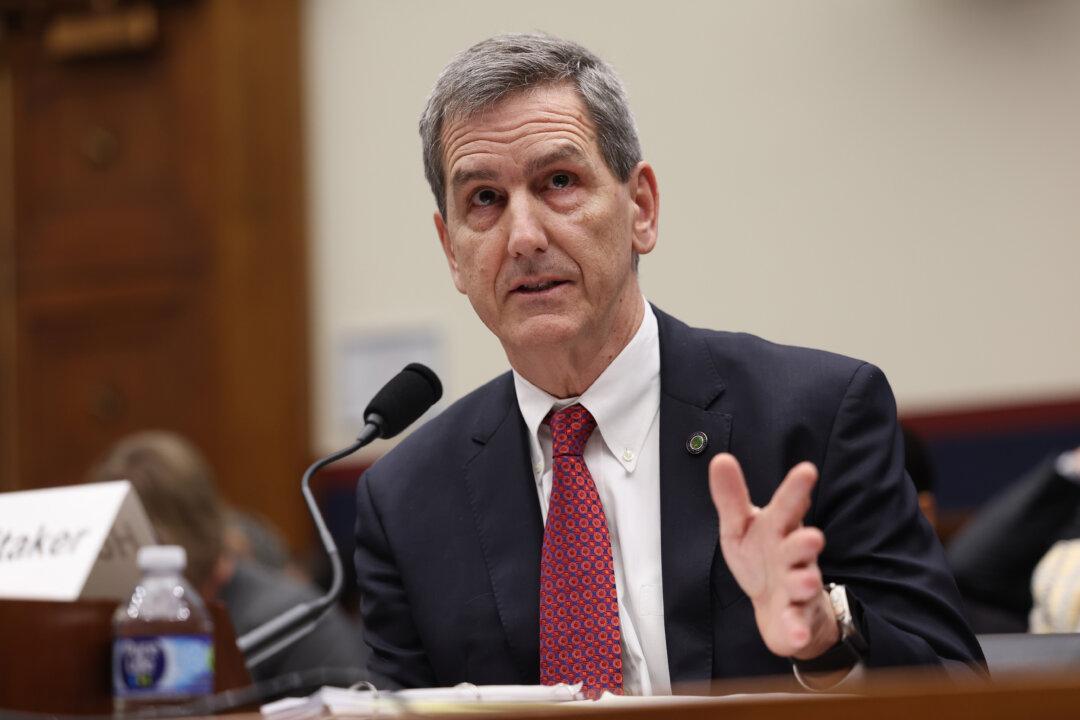The new head of the Federal Aviation Administration (FAA) said the agency is increasing its oversight of Boeing after one of the aircraft manufacturer’s 737 Max 9 jets was forced to make an emergency landing last month.
“Going forward, we will have more boots on the ground, closely scrutinizing and monitoring production and manufacturing activities,” FAA Administrator Michael Whitaker told members of the House Transportation and Infrastructure Subcommittee on Aviation at a Feb. 6 hearing.





